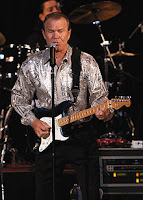With Jane out of action, the A team did a sterling job on Christmas lunch yesterday. We lingered over the turkey and trimmings with Château Capville 2009, and the sherry trifle and mince pies. One result was that we watched the Queen's Christmas address after 3 o'clock. However in my opinion it was worth waiting for. You can watch it here. I gather it's all her own work, without political advisers interfering. Perhaps it was an illusion fostered by the fact that Prince Philip was in Papworth Heart Hospital while the broadcast went out (obviously it had been filmed some time ago), and perhaps because Jane and I have been extra aware of the fragility of life, but to me there was a sense of the Queen wanting to record her most urgent message while she could.
It was nicely constructed, reminiscing over the royals' past year in which they'd seen extreme hardship in Australia and New Zealand and South Wales, and the response of courage. It reflected on the strength of friendship and family, mentioning the her two grandchildren's weddings. Its conclusion, somewhat flinched at by the press, was uncompromising and uncoded, simple and profound:
"For many, this Christmas will not be easy. With our armed forces deployed around the world, thousands of service families face Christmas without their loved ones at home.
"The bereaved and the lonely will find it especially hard. And, as we all know, the world is going through difficult times. All this will affect our celebration of this great Christian festival.
"Finding hope in adversity is one of the themes of Christmas. Jesus was born into a world full of fear. The angels came to frightened shepherds with hope in their voices: 'Fear not', they urged, 'we bring you tidings of great joy, which shall be to all people.
"'For unto you is born this day in the City of David a Saviour who is Christ the Lord.'
"Although we are capable of great acts of kindness, history teaches us that we sometimes need saving from ourselves - from our recklessness or our greed.
"God sent into the world a unique person - neither a philosopher nor a general, important though they are, but a Saviour, with the power to forgive.
"Forgiveness lies at the heart of the Christian faith. It can heal broken families, it can restore friendships and it can reconcile divided communities. It is in forgiveness that we feel the power of God's love.
"In the last verse of this beautiful carol, O Little Town Of Bethlehem, there's a prayer:
O Holy Child of Bethlehem,
Descend to us we pray.
Cast out our sin
And enter in.
Be born in us today.
"It is my prayer that on this Christmas day we might all find room in our lives for the message of the angels and for the love of God through Christ our Lord."
"Neither a philosopher nor a general... but a Saviour with the power to forgive" - that is strong stuff. It's not PC, but yet it's true. "Forgiveness lies at the heart of the Christian faith" and it is able to heal families, friendships and communities, and, as her Majesty's prayer implies, it is not something endemic to humanity, but something given through Jesus Christ. Well said, Ma'am!
And thank you, family, for a wonderfully lovely Christmas.






















